HDMI Cable | Active HDMI Cables
HDMI (High-Definition Multimedia Interface) cable has become an essential part of our digital lives. This cable is used to transfer high-quality audio and video signals from one device to another. They have revolutionized the way we watch TV, play video games, and connect our devices to our computers. With the rise of high-definition displays, HDMI cables have become a staple in modern homes and offices. They are the go-to solution for transmitting high-quality audio and video signals from one device to another. However, not all HDMI cables are created equal. Active HDMI cables, in particular, offer a significant advantage over their passive counterparts. In this article, we'll explore everything you need to know about all types of HDMI cables including active HDMI cables- their benefits, how it works, and why you might need one.
What is HDMI?
HDMI stands for High-Definition Multimedia Interface, and it is a digital interface that is used to transmit high-quality audio and video signals between two devices. HDMI was first introduced in 2002 and has since become the standard for high-definition digital video and audio. HDMI cables are capable of transmitting both high-definition video and high-quality audio over a single cable, making them very convenient and easy to use.
How Does HDMI Work?
HDMI cables work by transmitting digital signals between two devices. The cable consists of multiple wires that are used to transmit data, with each wire carrying a different type of signal. When a device is connected to another device using an HDMI cable, the two devices negotiate the best possible settings for the connection, including the resolution and frame rate of the video.
Types of HDMI Cables
There are several different types of HDMI cables based upon resolution, each with its own set of features and capabilities. The most common types of HDMI cables are:
Standard HDMI:
This is the most common type of HDMI cable and is capable of transmitting high-definition video and audio signals up to 1080p.
High-Speed HDMI:
This type of HDMI cable is capable of transmitting high-definition video and audio signals up to 4K resolution.
Premium High-Speed HDMI:
This is the highest quality HDMI cable available and is capable of transmitting high-definition video and audio signals up to 10K resolution.
HDMI with Ethernet:
This type of HDMI cable includes an Ethernet channel, which allows for an internet connection to be shared between two devices.
Active HDMI cables
Active HDMI cables are HDMI cables that have built-in electronics that help to boost the signal. They are designed to overcome the limitations of passive HDMI cables, such as signal loss over long distances. Active HDMI cables can be used for longer distances and can transmit a higher quality signal.
Passive vs. Active HDMI cables
There are two types of HDMI cables: passive and active. Passive HDMI cables are simple cables that transmit signals from one device to another without any processing. Active HDMI cables, on the other hand, have built-in electronics that help to boost the signal.
How do active HDMI cables work?
Active HDMI cables have built-in electronics that help to amplify the signal. They use a small power source to boost the signal, which makes it possible to transmit the signal over longer distances without any loss of quality.
Benefits of using active HDMI cables
The benefits of using active HDMI cables include:
- Longer distances: Active HDMI cables can be used for longer distances without any loss of quality.
- Higher quality signal: Active HDMI cables can transmit a higher quality signal than passive HDMI cables.
- Reduced signal loss: Active HDMI cables help to reduce signal loss over long distances.
- Compatibility: Active HDMI cables are compatible with all HDMI devices.
How to choose the right active HDMI cable
When choosing an active HDMI cable, there are several factors to consider:
- Length: Make sure to choose a cable that is long enough for your needs.
- Bandwidth: Make sure the cable has enough bandwidth to support the highest quality signal you need.
- Power: Check to see if the cable requires external power or if it is self-powered.
- Compatibility: Make sure the cable is compatible with your devices.
Common misconceptions about active HDMI cables
There are several misconceptions about active HDMI cables. One of the most common misconceptions is that active HDMI cables are more expensive than passive HDMI cables. While this may have been true in the past, the price difference between active and passive HDMI cables has decreased over time. Additionally, active HDMI cables offer significant benefits over passive HDMI cables, making them worth the investment in certain situations.
How to connect active HDMI cables
Can we use active HDMI cables for gaming?
What are the best active HDMI cables on the market?
- AmazonBasics Active High-Speed HDMI Cable
- Belkin Ultra HD High-Speed HDMI Cable
- Cable Matters Active HDMI Cable
- Mediabridge Active HDMI Cable
Choosing the Right HDMI Cable
Choosing the right HDMI cable depends on the devices you are connecting and the resolution of the video you are transmitting. For most home entertainment systems, a High-Speed HDMI cable is sufficient. However, if you are connecting a 4K or 8K TV, you may want to consider a Premium High-Speed HDMI cable for the best possible picture quality.
It is also important to consider the length of the HDMI cable you need. Longer cables can lead to a degradation in signal quality, so it is important to choose a cable that is the appropriate length for your needs.
Summary
HDMI cables have become an essential part of our digital lives, allowing us to transmit high-quality audio and video signals between devices. There are several different types of HDMI cables available, each with its own set of features and capabilities. Choosing the right HDMI cable depends on the devices you are connecting and the resolution of the video you are transmitting. By understanding how HDMI cables work and choosing the right cable for your needs, you can enjoy high-quality audio and video in your home entertainment system. Active HDMI cables offer significant benefits over passive HDMI cables, making them a great choice for many situations. Whether you need to transmit a signal over a longer distance or need a higher quality signal, active HDMI cables can help.
FAQ
Do I need an active HDMI cable?
What is the difference between active and passive HDMI cables?
How do active HDMI cables work?
Can I use an active HDMI cable for gaming?
What are the best active HDMI cables on the market?
- AmazonBasics Active High-Speed HDMI Cable
- Belkin Ultra HD High-Speed HDMI Cable
- Cable Matters Active HDMI Cable
- Mediabridge Active HDMI Cable
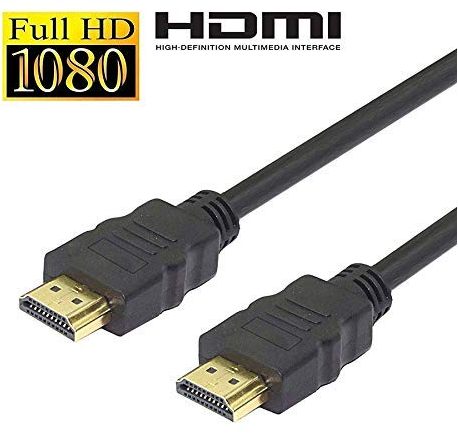
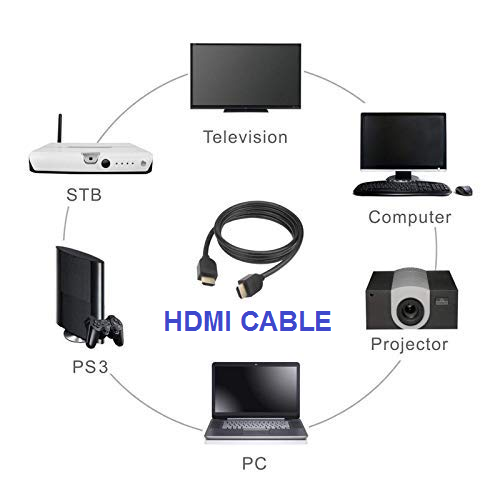
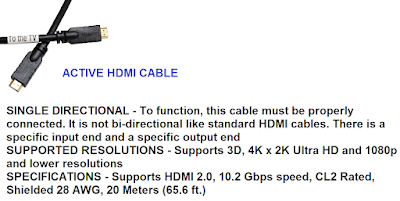
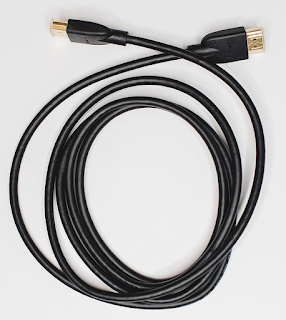
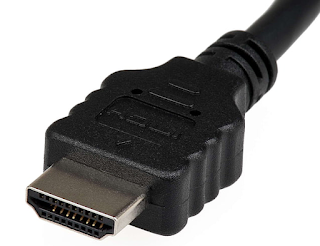
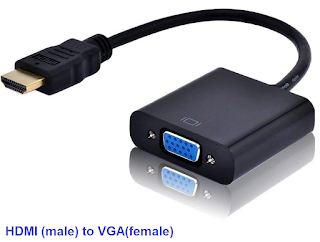





Post a Comment